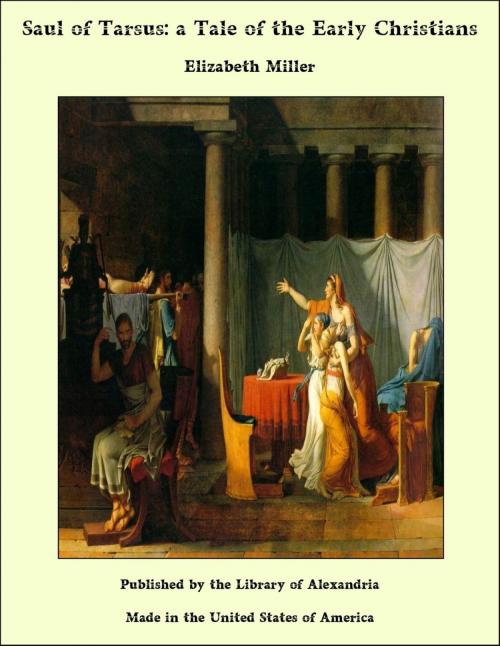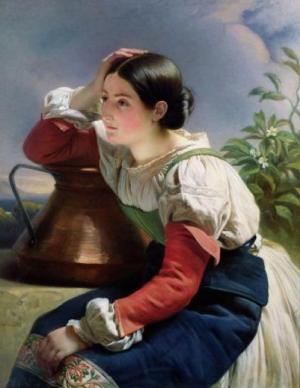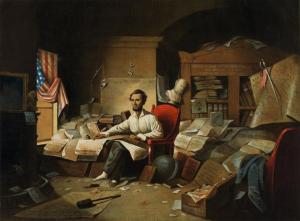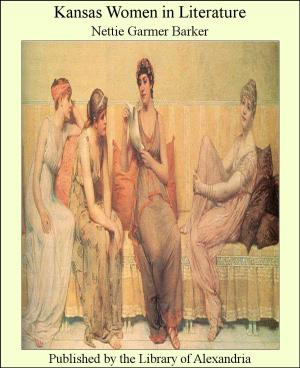Saul of Tarsus: a Tale of the Early Christians
Nonfiction, Religion & Spirituality, New Age, History, Fiction & Literature| Author: | Elizabeth Miller | ISBN: | 9781465508294 |
| Publisher: | Library of Alexandria | Publication: | March 8, 2015 |
| Imprint: | Language: | English |
| Author: | Elizabeth Miller |
| ISBN: | 9781465508294 |
| Publisher: | Library of Alexandria |
| Publication: | March 8, 2015 |
| Imprint: | |
| Language: | English |
On a certain day in March of the year 36 A.D., a Levite, one of the Shoterim or Temple lictors, came down from Moriah, into the vale of Gihon, and entered the portal of the great college, builded in Jerusalem for the instruction of rabbis and doctors of Law in Judea. With foot as rapid and as noiseless as that of a fox among the tombs, the Levite crossed the threshold into the great gloom of the interior. This way and that he turned his head, watchful, furtive, catching every obscure corner in the range of his glance. He saw that three men sat within, two together, one a little apart from the others. From this to that one, the alert gaze slipped until it lighted upon a small, bowed shape in white garments. Then the Levite smiled, his lips moved and shaped a word of satisfaction, but no sound issued. Silently he flitted into an aisle which would lead him upon the two, and suddenly appeared before them. The small bent figure made a nervous start, but the Levite bowed and rubbed his hands. "Greeting, Rabbi Saul; God's peace attend thee. Be greeted, Rabbi Eleazar; peace to thee!" Rabbi Eleazar raised a great head and looked with an unfavorable eye at the Levite; in it was to be read strong dislike of the Levite's stealthy manner. "Greeting, Joel," he replied in a voice quite in keeping with his splendid bulk, "peace to thee. Yet take it not amiss if I suggest that since there is no warning in thy footfall or thy garments, thou shouldst be belled!" The other had dropped back in his seat, and the Levite bowed again to him. "I pray thy pardon, Rabbi Saul, but I came as I was sent—in haste." "It is nothing, Joel," Saul answered. "Give us news of the High Priest's health." "He continues in health, God be thanked, but his spirit was sorely tried—" He stopped abruptly to look, as if in question, at the man sitting apart in the shadows. "Who is that?" he asked suspiciously. "A pupil," was Eleazar's impatient reply. The Levite looked again, but, the twilight thwarting him, he hitched a slant shoulder and, passing to one of the windows, drew aside its heavy hanging. Instantly, a great golden beam shot into the cold chamber and illuminated it gloriously. Saul threw his hand over his eyes to shut out the blinding radiance. But the pupil, helped at his reading by the admitted light, straightened himself, glanced up a moment, and turned to his scroll without a word. "A stranger," Joel whispered, coming back to the rabbis. "What burden of mystery dost thou conceal, Joel?" Eleazar exclaimed. "Yonder man is an Essene; look about; the stones will take tongue and betray thee, sooner than he." "Let me be sure, let me be sure!" Joel insisted stubbornly. As if obedient to Eleazar, he cast an eye about the chamber. The light which came in at the west was straight from the spring sun, moted and warm with benevolence. That which entered at the east was only a quivering reflection from the marble walls and golden gates of the Temple. The chamber was immense, shadowy and draughty, the floor of stone, the walls of Hermon's rock, relieved by massive arcades supported on pilasters, and friezes of such images as were hieratically approved. The ceiling was so lost in height and cold dusk that its structure could not be defined. At the end opposite the doors was the lectern of ivory and ebony, embellished with symbolical intaglios and inlaid with gold. Beside it stood the reader's chair, across which the rug had been dropped as he had put it off his knees. Before the lectern, across and down the great chamber, were ranges of carven benches, among which were lamps of bronze, darkened and green about the reliefs and corrugations on the bowls, depending from chains or set about on tripods.
On a certain day in March of the year 36 A.D., a Levite, one of the Shoterim or Temple lictors, came down from Moriah, into the vale of Gihon, and entered the portal of the great college, builded in Jerusalem for the instruction of rabbis and doctors of Law in Judea. With foot as rapid and as noiseless as that of a fox among the tombs, the Levite crossed the threshold into the great gloom of the interior. This way and that he turned his head, watchful, furtive, catching every obscure corner in the range of his glance. He saw that three men sat within, two together, one a little apart from the others. From this to that one, the alert gaze slipped until it lighted upon a small, bowed shape in white garments. Then the Levite smiled, his lips moved and shaped a word of satisfaction, but no sound issued. Silently he flitted into an aisle which would lead him upon the two, and suddenly appeared before them. The small bent figure made a nervous start, but the Levite bowed and rubbed his hands. "Greeting, Rabbi Saul; God's peace attend thee. Be greeted, Rabbi Eleazar; peace to thee!" Rabbi Eleazar raised a great head and looked with an unfavorable eye at the Levite; in it was to be read strong dislike of the Levite's stealthy manner. "Greeting, Joel," he replied in a voice quite in keeping with his splendid bulk, "peace to thee. Yet take it not amiss if I suggest that since there is no warning in thy footfall or thy garments, thou shouldst be belled!" The other had dropped back in his seat, and the Levite bowed again to him. "I pray thy pardon, Rabbi Saul, but I came as I was sent—in haste." "It is nothing, Joel," Saul answered. "Give us news of the High Priest's health." "He continues in health, God be thanked, but his spirit was sorely tried—" He stopped abruptly to look, as if in question, at the man sitting apart in the shadows. "Who is that?" he asked suspiciously. "A pupil," was Eleazar's impatient reply. The Levite looked again, but, the twilight thwarting him, he hitched a slant shoulder and, passing to one of the windows, drew aside its heavy hanging. Instantly, a great golden beam shot into the cold chamber and illuminated it gloriously. Saul threw his hand over his eyes to shut out the blinding radiance. But the pupil, helped at his reading by the admitted light, straightened himself, glanced up a moment, and turned to his scroll without a word. "A stranger," Joel whispered, coming back to the rabbis. "What burden of mystery dost thou conceal, Joel?" Eleazar exclaimed. "Yonder man is an Essene; look about; the stones will take tongue and betray thee, sooner than he." "Let me be sure, let me be sure!" Joel insisted stubbornly. As if obedient to Eleazar, he cast an eye about the chamber. The light which came in at the west was straight from the spring sun, moted and warm with benevolence. That which entered at the east was only a quivering reflection from the marble walls and golden gates of the Temple. The chamber was immense, shadowy and draughty, the floor of stone, the walls of Hermon's rock, relieved by massive arcades supported on pilasters, and friezes of such images as were hieratically approved. The ceiling was so lost in height and cold dusk that its structure could not be defined. At the end opposite the doors was the lectern of ivory and ebony, embellished with symbolical intaglios and inlaid with gold. Beside it stood the reader's chair, across which the rug had been dropped as he had put it off his knees. Before the lectern, across and down the great chamber, were ranges of carven benches, among which were lamps of bronze, darkened and green about the reliefs and corrugations on the bowls, depending from chains or set about on tripods.















